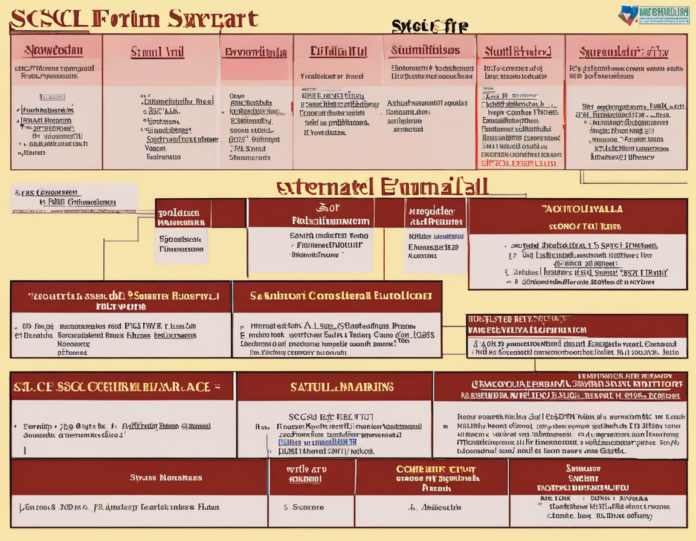Are you preparing for competitive exams like the Staff Selection Commission (SSC) or similar government job recruitment tests? If so, you may have come across the term “SSC” but might not fully grasp its significance. In this post, we will delve into the SSC full form, its functions, and its relevance for those aiming to secure a government job in India.
What is SSC?
SSC stands for Staff Selection Commission. Established in 1975, the SSC is a governmental body under the Department of Personnel and Training, Government of India, which conducts recruitment exams to fill various positions in government offices and departments. The main objective of the SSC is to recruit skilled individuals for various posts in ministries and departments of the Government of India and in subordinate offices.
Functions of the SSC:
-
Conducting Exams: The SSC conducts multiple exams throughout the year to recruit candidates for various positions in government offices. Some of the popular exams conducted by the SSC include CGL (Combined Graduate Level), CHSL (Combined Higher Secondary Level), MTS (Multi-Tasking Staff), JE (Junior Engineer), etc.
-
Recruitment Process: The recruitment process by the SSC involves multiple stages like Tier I, Tier II, skill tests, and interviews, depending on the position applied for. Candidates need to clear each stage to move forward in the selection process.
-
Transparency and Fairness: The SSC ensures a transparent and fair selection process by conducting exams in multiple phases and releasing answer keys and results promptly.
-
Catering to Different Educational Backgrounds: The SSC conducts exams for candidates with different educational qualifications, ranging from 10+2 to graduates and above.
Importance of SSC for Competitive Exams:
-
Gateway to Government Jobs: Qualifying SSC exams opens the door to a wide range of job opportunities in government ministries, departments, and organizations, ensuring job security and perks.
-
Prestige and Stability: Government jobs secured through the SSC are considered prestigious and offer stability in career growth and benefits.
-
Salary and Perks: Government jobs through the SSC provide handsome salary packages, along with various allowances and benefits like pension, insurance, etc.
-
Job Diversity: The SSC recruits for positions in various fields like clerical, assistant, engineering, etc., catering to candidates from different educational backgrounds.
Types of SSC Exams:
-
SSC Combined Graduate Level (CGL): Conducted for graduates for various Group B and Group C posts in different ministries and departments.
-
SSC Combined Higher Secondary Level (CHSL): Conducted for 10+2 passed candidates for posts like Lower Division Clerk (LDC), Data Entry Operator (DEO), etc.
-
SSC Junior Engineer (JE): Conducted for engineering graduates for the position of Junior Engineers in various departments like CPWD, MES, etc.
-
SSC Multi-Tasking Staff (MTS): Conducted for candidates who have passed matriculation for the general service group of posts in different ministries and departments.
Key Points to Remember for SSC Exams:
-
Syllabus and Exam Pattern: Understanding the syllabus and exam pattern is crucial to prepare effectively for SSC exams.
-
Time Management: Practicing time-bound mock tests is essential to improve time management skills during the exam.
-
Stay Updated: Regularly check the official SSC website for exam notifications, updates, and changes in exam patterns.
-
Mock Tests and Previous Papers: Solving mock tests and previous years’ question papers helps in understanding the exam pattern and type of questions asked.
FAQs about SSC Full Form:
- What is the full form of SSC in the context of competitive exams?
Answer: The full form of SSC is Staff Selection Commission.
- Who can apply for SSC exams?
Answer: Candidates who have passed 10+2, graduates, or equivalent can apply for different SSC exams based on the eligibility criteria.
- What is the age limit for SSC exams?
Answer: The age limit varies for different exams and categories. Generally, it ranges between 18-32 years, with age relaxation for reserved categories.
- How many times does SSC conduct exams in a year?
Answer: The SSC conducts various exams throughout the year, such as CGL, CHSL, MTS, etc., each with its specific exam schedule.
- What are the benefits of clearing SSC exams?
Answer: Clearing SSC exams opens the door to lucrative government jobs with stability, decent pay, perks, and career growth opportunities.
In conclusion, understanding the SSC full form and its significance is crucial for aspirants aiming to crack competitive exams for government jobs in India. By familiarizing yourself with the functions, types of exams, and preparation strategies for SSC exams, you can enhance your chances of success and secure a rewarding career in the government sector.





